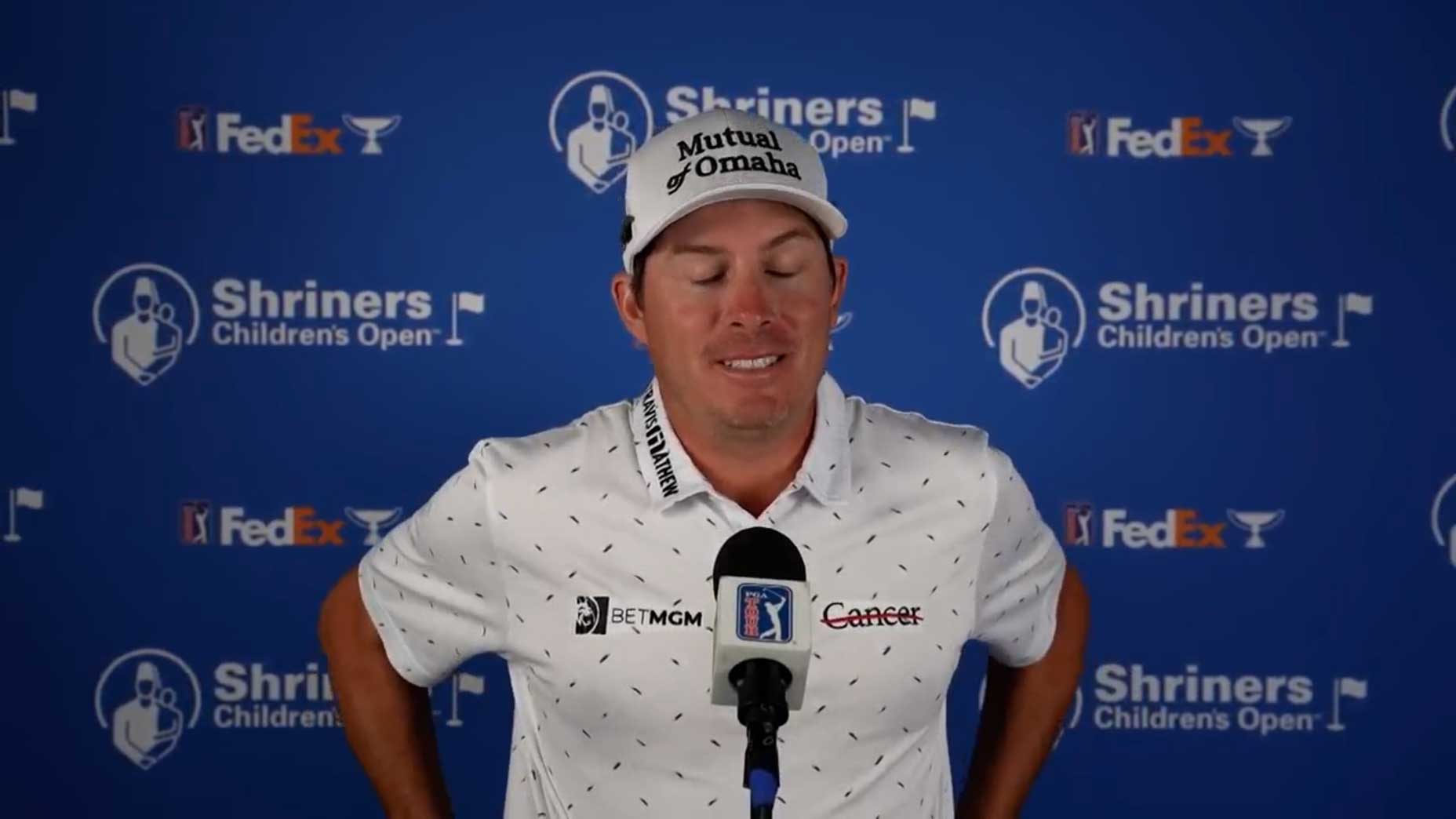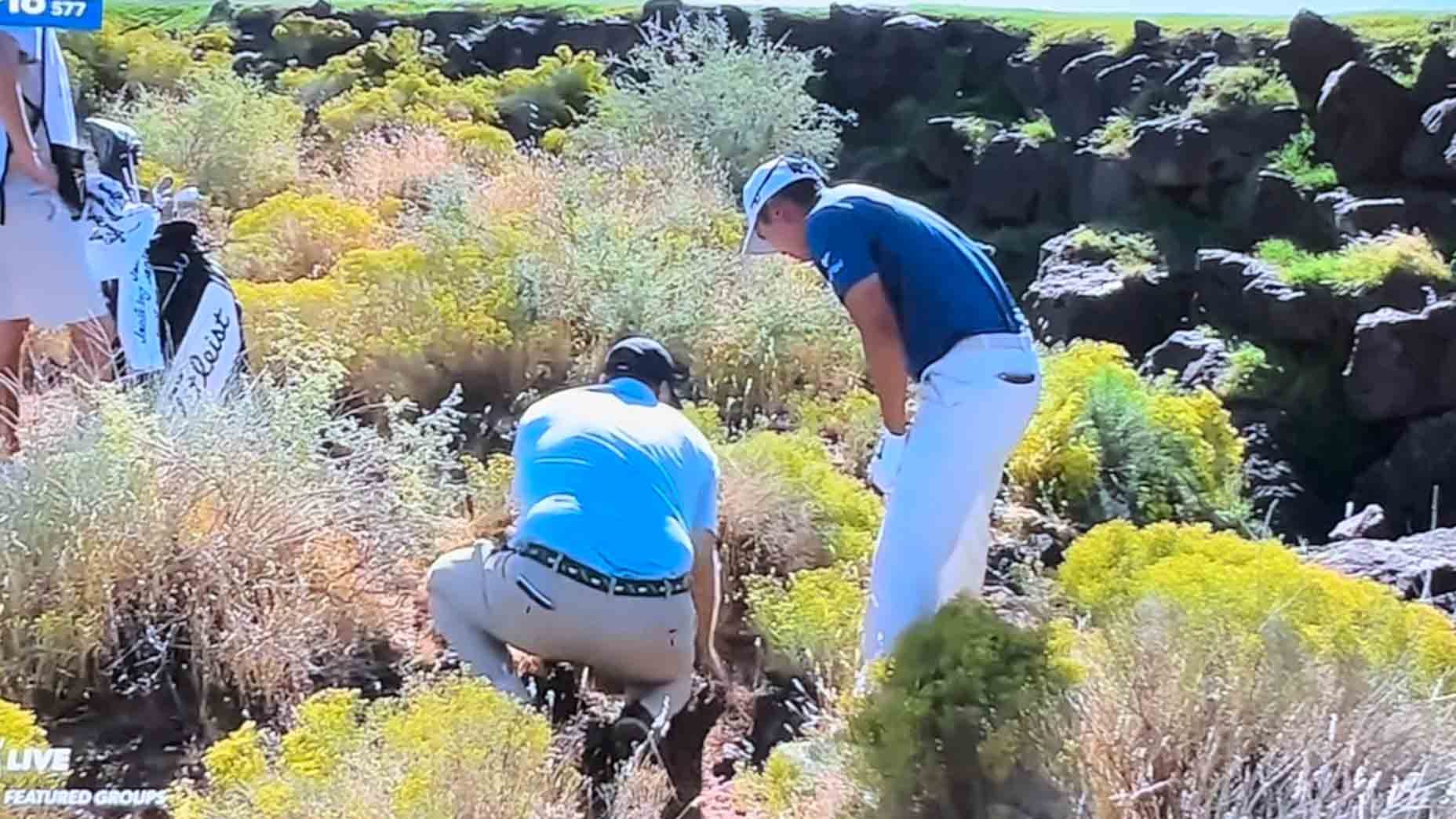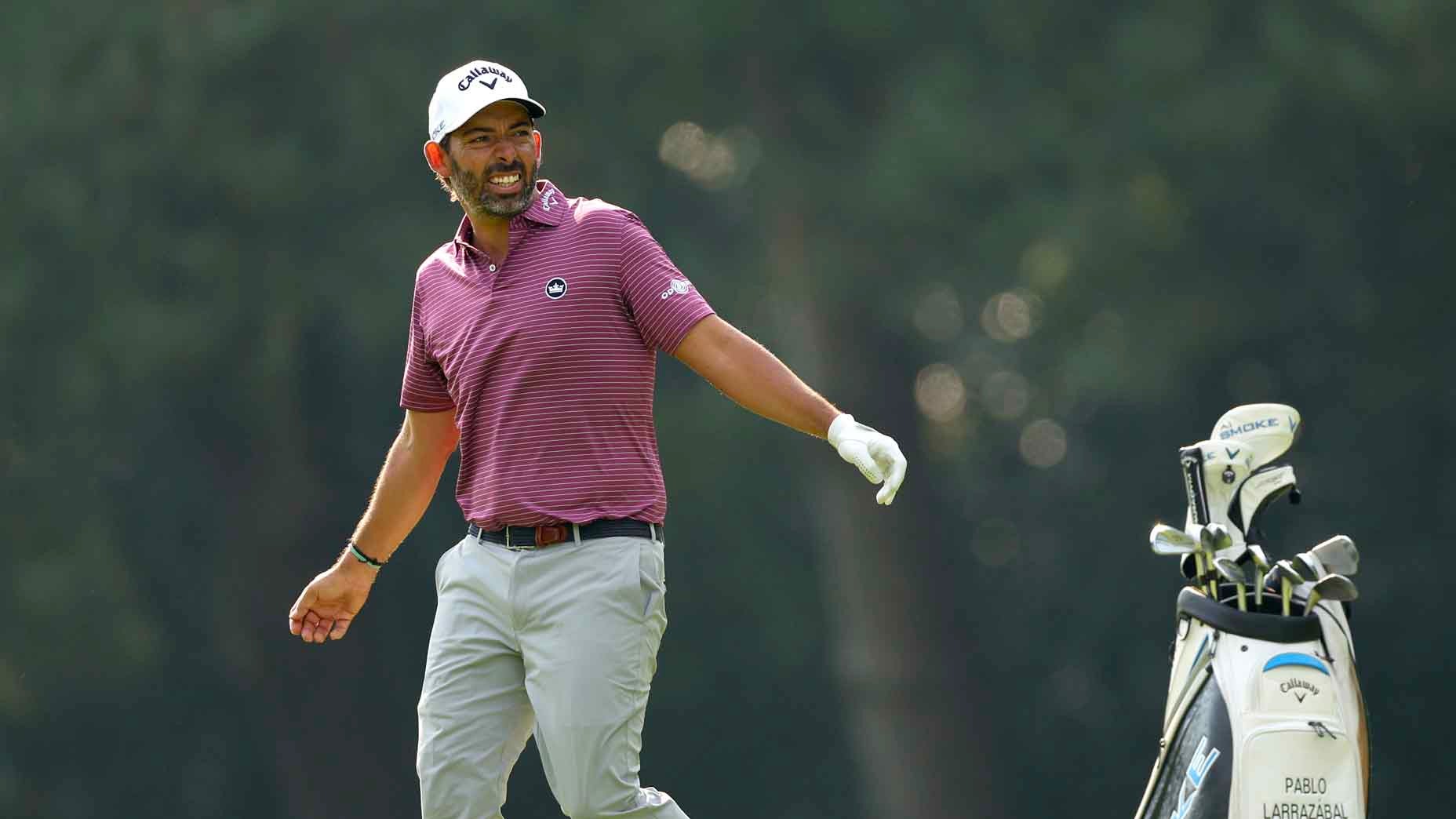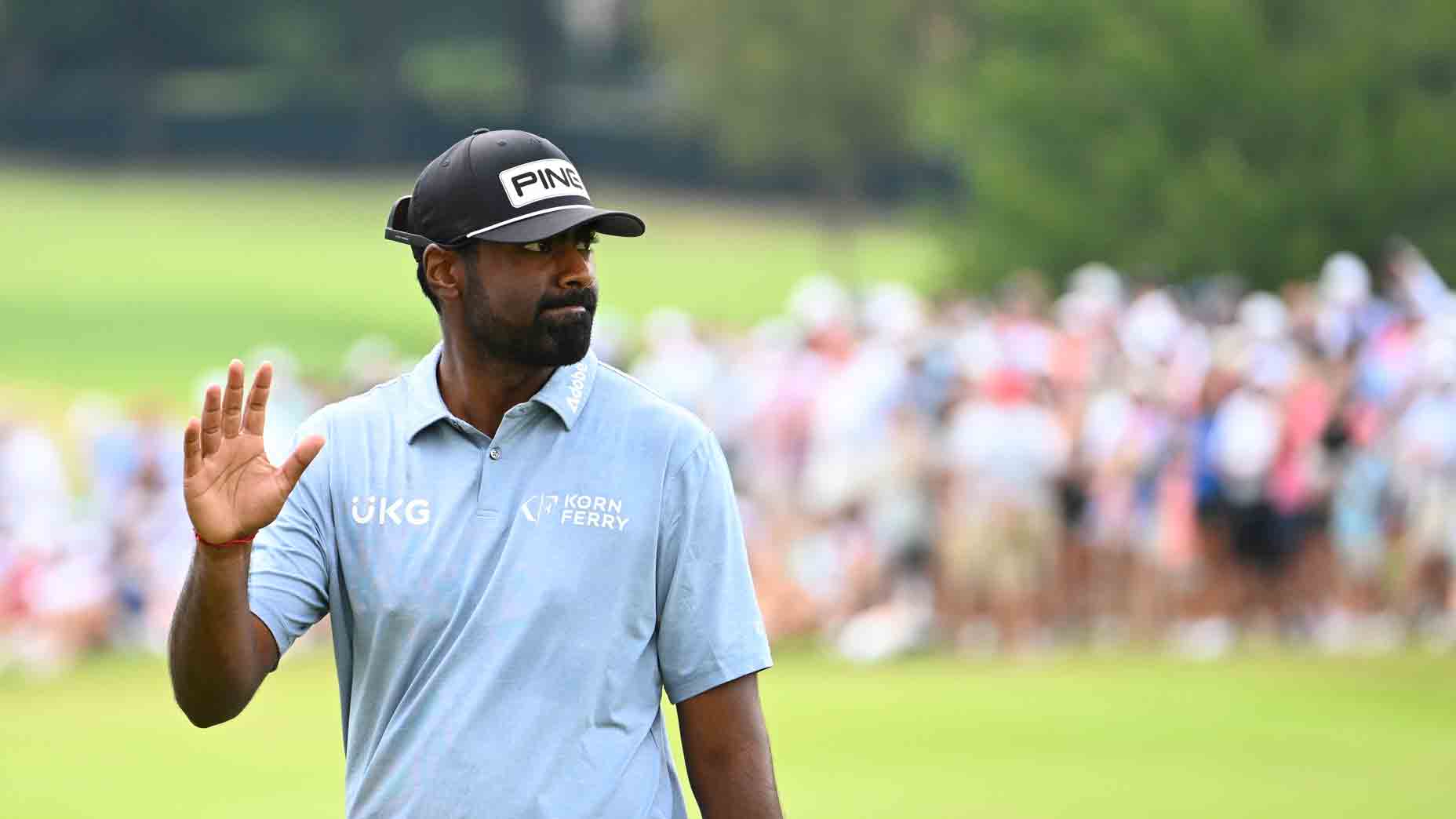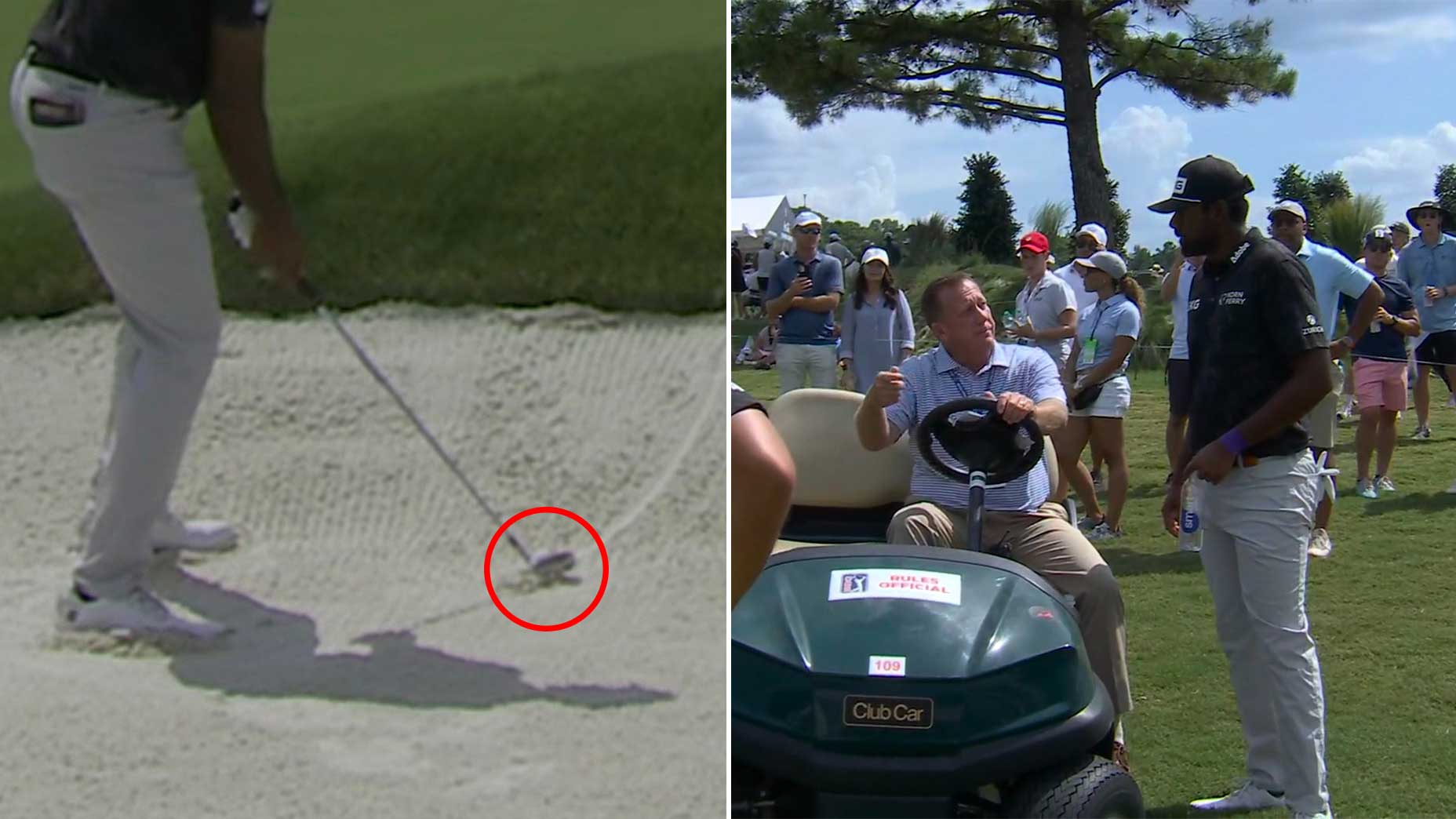Cam Smith’s delayed two-stroke penalty raises questions about timing
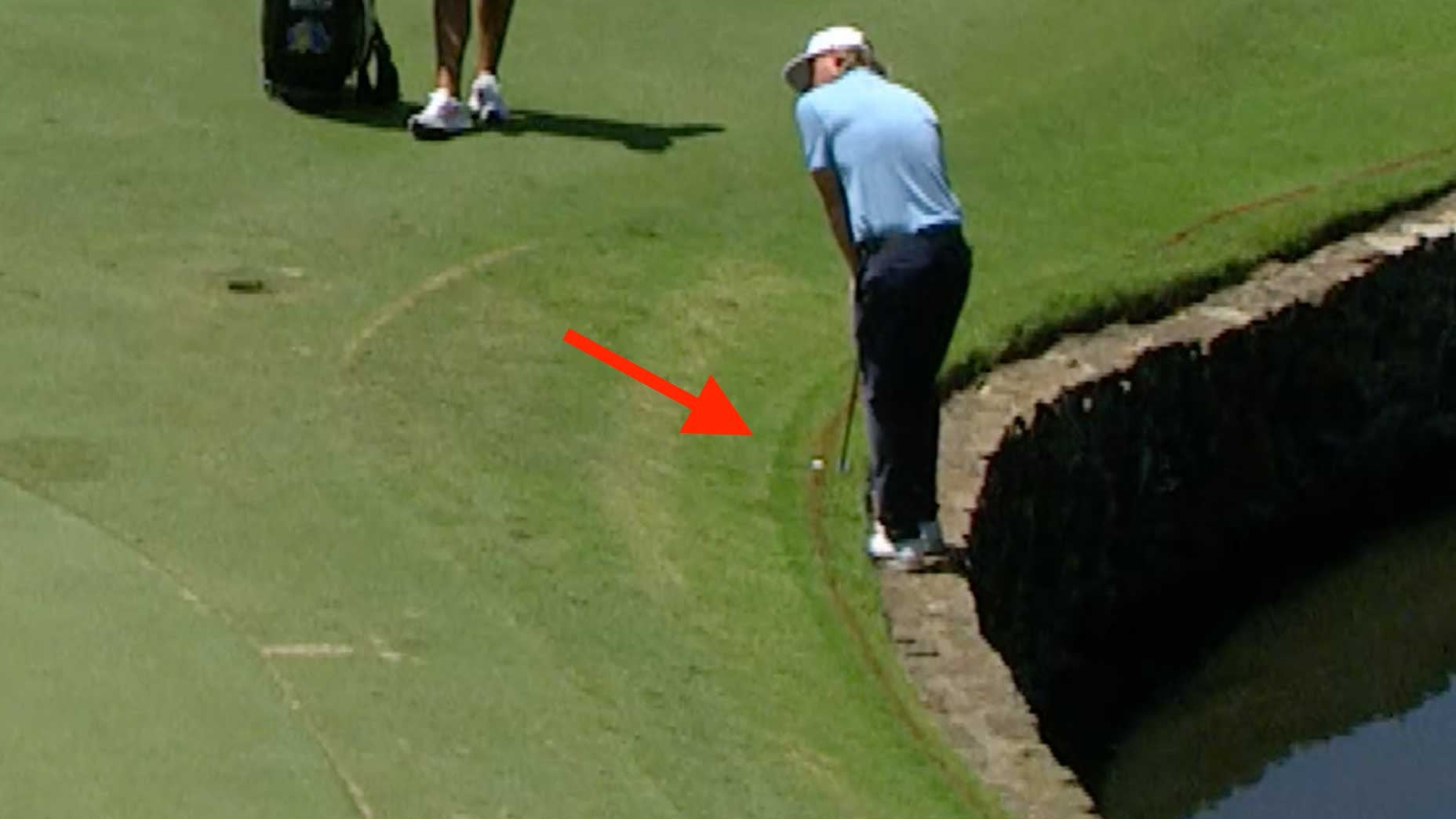
Cameron Smith was assessed a two-stroke penalty.
PGA Tour
When Cameron Smith arrived at TPC Southwind on Sunday morning, he was two strokes off the FedEx St. Jude Championship lead. He was also the betting favorite, going off at sportsbooks at around +350 to emerge the winner come Sunday evening. Plenty was at stake — not just Smith’s FedEx Cup chances but also the fact that with a win, he would get to World No. 1 for the first time in his career.
But when Smith arrived at the course on Sunday, PGA Tour chief referee Gary Young pulled him aside. After a brief discussion, Smith was assessed a costly two-stroke penalty for an improper drop he’d taken early in the third round. Smith returned to the range; now he was 9 under instead of 11 under, four shots back of leader J.J. Spaun instead of two.
Everyone seemed in agreement that Smith was assessed the correct penalty (he was in breach of Rule 14.7), but the awkward timing left plenty of questions about how and when deferred penalties should be assessed.
The infraction in question came at the par-3 fourth hole on Saturday. Smith’s tee shot found the water, so he took a drop. But when he dropped, his ball came to rest on the edge of the penalty area, on the edge of the red line.
Young said he and other officials were watching the live broadcast when they saw Smith play his next shot. The moment caught their attention because players taking penalty drops are required to take full relief from the penalty area. But Smith’s ball appeared to be on the red line, and the line counts as part of the penalty area.
“Originally, we thought, boy, this is so rudimentary, not even worth asking. It was such a quick view that we had of it that we were confident that he was comfortable playing from where he did,” Young said.
A Tour official looked into it further but, given the uncertainty of camera angles and the “geometry of the situation,” they assumed Smith was familiar with the rule and there wasn’t much worth following up on.
But another official watched a re-air of the broadcast on Saturday night. He decided to raise the issue the next morning. The rules committee watched the drop again and reconsidered.
“After seeing the rebroadcast and seeing it again, we felt that it was pretty close to the line and worth a second look,” Young said. “So we did take a second look at it and sure enough, we felt it was really close to the line, if not touching and possibly on the line. So it was worth asking the player.”
Young said that realization happened at around 11:15 a.m. on Sunday morning.
“That was when we felt strongly it was at least worth having a conversation,” he said. Some five minutes later, he found Smith, who was alone by the foyer getting ready to begin his prep. Young called him into his office.
Young said that he suspected Smith might refute what they thought they’d seen on broadcast. If he’d said he was comfortable that he’d played the ball outside the penalty area and that the angle on TV was misleading, that would have been enough to exonerate him. Instead — and to his credit — Smith admitted his guilt.
“When I asked him the question, unfortunately, he said to me, ‘No, the ball was definitely touching the line,'” Young said. “So at that point there’s no turning back. That was a moment where I know that the player has knowledge that the ball was touching the line, he just simply didn’t understand the rule that it requires the entire ball to be outside of the penalty area and in his relief area.”
Young said that Smith was fully accepting of the penalty. “The rules are the rules,” he told Young, and “very calmly” left the office.
Young defended the decision, acknowledging that the timing was less than ideal but that they’d taken action as soon as they could.
“We have a fiduciary duty to the entire field to follow up on these things and we did that.”
But the ruling reignited discussions about if and when retroactive penalties should be applied. By the time Smith’s penalty was assessed, he’d spent nearly 18 hours in his position on the leaderboard. While golf officials no longer take calls from armchair officials watching the broadcast at home, they still have latitude to revisit penalties from the day before. That’s not a freedom that officials utilize in most other major sports. While people can argue about how quick “instant” replay really is, plays are generally considered final once the next play has begun. Golf’s scorekeeping is different in a variety of ways, but the unbounded nature of its replay seems unnecessarily open-ended.
Smith now joins a group of high-profile players — including Tiger Woods, Dustin Johnson and Lexi Thompson — who have been handed deferred penalties while in contention. It’s not clear how Smith’s penalty would have been handled differently if he had already begun his final round when the committee reviewed the situation, but notifying him in real time would have been difficult.
Smith’s penalty also came in the context of increased speculation about his playing future. During a pre-tournament press conference, Smith was asked about a report asserting he’d signed a contract to join the LIV tour; the Telegraph reported the deal was worth in excess of $100 million. He neither confirmed nor denied the report.
“I’m a man of my word and whenever you guys need to know anything, it’ll be said by me,” he said, a non-answer that led to inevitable follow-ups. So…was he going? “I have no comment to that,” Smith said. “I’m here to play the FedEx Cup.”
Smith is famously unflappable. If the two-stroke penalty rattled him, he sure didn’t show any signs of it off the jump. He found the fairway, stuck his approach to seven feet and poured in the putt for an opening birdie.
Now he was only three back.



